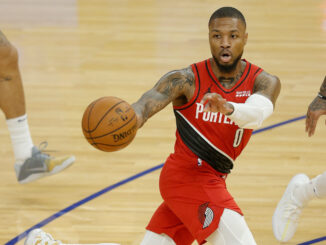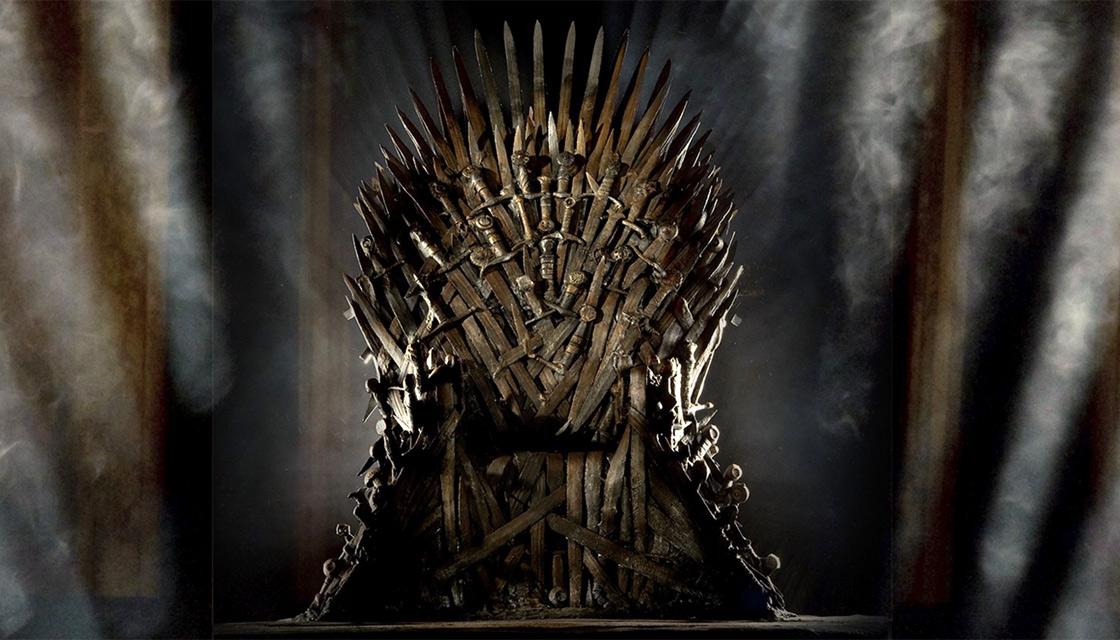
Let’s just start off by acknowledging the obvious: Evan Turner has underwhelmed thus far for the Portland Trail Blazers. After signing a four-year, $70-million contract, which reportedly left Turner giddy, the seventh-year vet has statistically left Rip City with much to be desired. While his 9.1 points, 3.2 assists, and 3.8 rebounds per game aren’t career lows, they’re awfully close. There’s been no improvement in his three-point shot, he’s Portland’s oldest player at 28 years old, and he’s awkwardly found himself in the middle of the Blazers’ small forward logjam.
So where does that leave Turner as the Trail Blazers get ready to take on the Golden State Warriors in the first round of the 2017 NBA Playoffs?
As Portland’s x-factor.
Before we dive into the reasoning, let’s address something that all of Rip City should be thankful for: During the 2016 offseason, Portland ‘missed out’ on its opportunity at signing Chandler Parsons, who has capped off his career low season with a season-ending knee injury.
Now that we’ve gotten that out of the way, let’s talk about Turner.
The big-money signing of Turner was a bold move by Blazers general manager Neil Olshey, but it was also justified. At age 28, he wasn’t brought on as a future asset, nor was he expected to be the final piece of a potential Blazers big three. Instead, Turner was brought on as a working cog in an already successful lineup. Someone who can play efficiently in whatever role he’s given. Furthermore, Turner was brought on as an answer for a certain Western Conference powerhouse.
Now’s his time to shine.
The Trail Blazers’ ambitious 2016 playoff run was cut short by a historically great Warriors squad. While there’s no shame in falling to the NBA’s all-time best regular season team, you best believe every single person in that Trail Blazers locker room had a summertime parade down Broadway in mind.
There were a lot of reasons why the Trail Blazers couldn’t steal a series against the one-seeded Warriors. However, the one thing that stood out to me most was that Golden State had one single goal in mind, and it was enough to beat the Blazers; stop Damian Lillard and CJ McCollum.
The Warriors made it a point to disrupt off-ball movement by whoever wasn’t handling the ball, whether it be Dame or CJ. If Lillard was at the top of the arc, Golden State would be focused on preventing the almost inevitable pass to McCollum – and vice versa. There were no other dependable facilitators on the team to run through. No matter what rotation Terry Stotts played, Lillard and McCollum remained as the only two distributors.
Enter Portland’s 6’7”, 220-pound, Chicago-born swingman.
While it might not be easily seen on the stat sheet, Turner is a well-above average passer. His ability to facilitate an offense is a rare asset for someone of his stature. Over his career, Turner has seen time at the small forward, shooting guard, and point guard positions; a clear indicator of his versatility. He’s also made his way in the league as an above-average multi-positional defender.
Whether it’s Stephen Curry, Klay Thompson, or Kevin Durant who warm up, the Trail Blazers will have the option to throw Turner on any one of them. This becomes especially handy when a duo of Warriors start to catch fire, in which a combination of Turner and Maurice Harkless/Al-Farouq Aminu can be utilized.
The Villain, as he was not-so-affectionately called by former a Ohio State teammate, will have to play the hero’s role in this year’s playoff matchup against the Warriors if the Blazers have any hopes of pulling off an eighth seed upset.
With Turner on the floor alongside Lillard and McCollum, Golden State will have to find a new way to stop this high-powered offense – the one-man off-ball trap will no longer suffice.
Lillard and McCollum could have an absolute heyday as they freely weave through big man-provided off-ball screens on an offense that’s not being facilitated by either one of them. Providing one of the NBA’s most lethal offensive duos with that kind of freedom is not only scary, but something that wasn’t done a whole lot this season.
The five-man lineup of Lillard, McCollum, Turner, Aminu, and Mason Plumlee was among the best in the NBA in terms of NetRtg (Net Rating) – 18.4. Another interesting statistical finding with this lineup is that its pace is noticeably low. With a pace rating of only 95.58, it’s evident that the Trail Blazers were able to run efficient set offenses with Turner as a distributer. Surprisingly, this lineup only played 82 minutes together, spread across 15 games.
What also may catch people by surprise is that lineup of Lillard, McCollum, Turner, Aminu, and Jusuf Nurkić has only seen 13 minutes together. That same lineup, with Harkless instead of Aminu, has only seen 8 minutes. This lineup hasn’t been played with Noah Vonleh subbed in at the PF position. This could be attributed to Nurkić’s mid-season arrival, as well as Turner’s broken hand, which kept him out for 14 games.
When it comes to the idea of change, there’s something you might hear quite often: If it ain’t broke, don’t fix it. With the way that the Trail Blazers have played with their starting lineup of Lillard, McCollum, Harkless/Aminu, Vonleh, and Nurkić, practically catapulting them into the playoffs, it can be expected that Stotts keeps this starting lineup going strong into the postseason. That is, of course, if Nurkić is cleared to play after suffering a fibular fracture in late March.
What role does that leave Turner? Easy – As an off-the-bench wildcard. A ticking time bomb who’s waiting to check in at small forward alongside Dame and CJ, slow down the offensive pace, and hopefully blow up Golden State’s planned defensive scheme.
From the second Turner was signed, it was apparent that his skill set could be a potential problem for Golden State. That his unorthodox distributing ability at the small forward position could force the Warriors into a defensive pickle. That somewhere within that signing, there was a thought about how he could be utilized to defeat the former champs.
Is it risky? To give this untested strategy a try in the postseason? You bet it is.
But if there’s ever a time to hold back, it’s definitely not the NBA playoffs.



